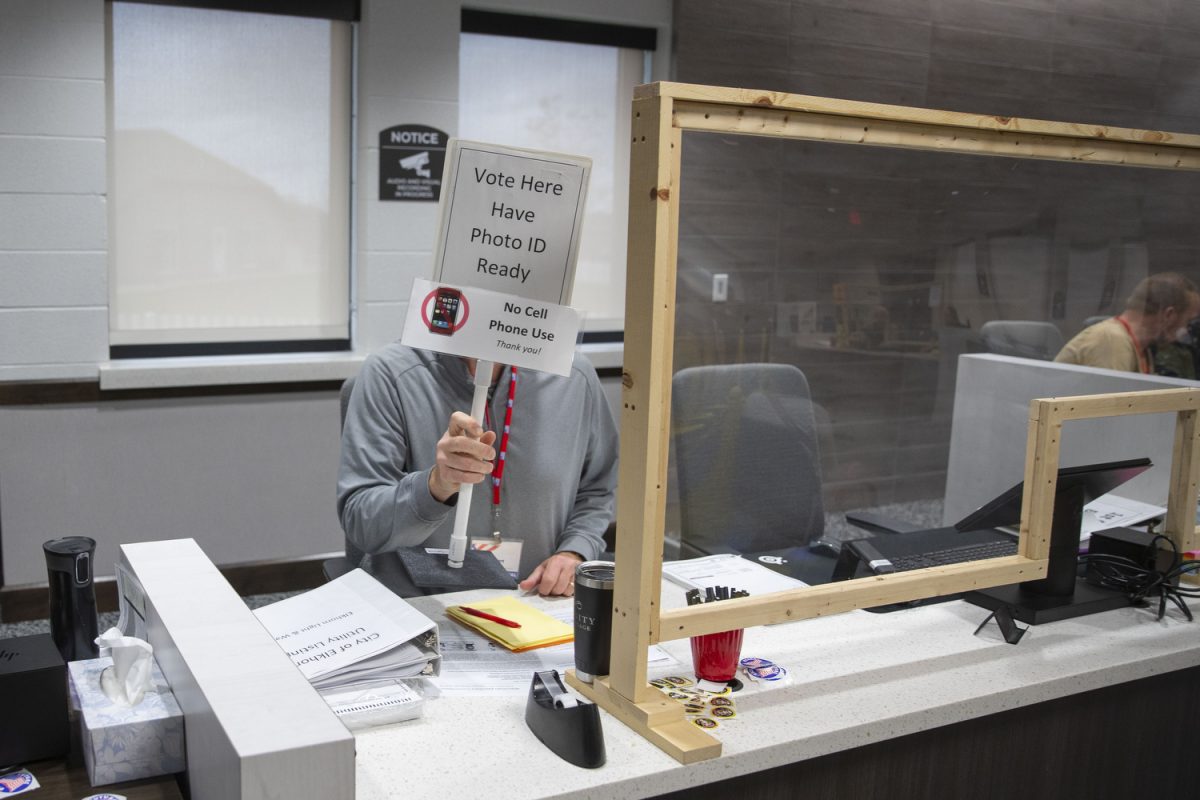MILWAUKEE — For the 2024 election cycle, University of Iowa alumni Sara Tomilin placed a political bumper sticker on her car, even though she typically avoids outwardly signaling her politics.
Although it was a small gesture, Tomilin worried about experiencing retribution from someone who disagreed with her support of Vice President Kamala Harris.
While driving, Tomilin said a large diesel truck drove by her and released a large amount of exhaust, purposefully obstructing her view. Tomilin was not harmed during the interaction but expressed concern about the reaction over such a minor political expression.
“In general, people are just more adversarial these days and can’t have a dialogue,” Tomilin said. “I really wish that we could kind of get back to the point where we were a little more respectful and had boundaries and respected other people’s viewpoints. So, that’s an unfortunate thing, not feeling like you can put your sign out on your front [lawn] or put my bumper sticker on my car or whatever, that someone’s going to do something.”
The match between Harris and former President Donald Trump is boiling down to several swing states — with Wisconsin sticking out as the state that decided the 2020 election.
The Badger State remained blue in almost every presidential election over the past several decades, but it is deemed a crucial battleground on Nov. 5. Wisconsin’s 10 Electoral College votes are projected to have a major sway in the outcome of the election.
The 2024 election marks only the second presidential election Karen Herzog, UI and The Daily Iowan alumni, has not reported on since 1984. A retired journalist, Herzog said it feels odd to experience politics without covering them.
Herzog said she attended Harris’ first rally as a presidential candidate in Milwaukee shortly after President Joe Biden stepped out of the race. The event was the first political rally Herzog attended without having to report on.
“That was the first rally I’d ever attended as a participant, and it was right next to press row,” Herzog said. “So, here my former colleagues are working, and I’m in the crowd. And it was just like, how do you behave? You know, it’s like I’m not supposed to have opinions.”
Herzog also attended Harris’ Milwaukee rally on Friday night. She said she expected to find the experience more enjoyable, considering she didn’t have to work during it. However, Herzog instead found herself grappling with the idea of participating.
“I have trouble actually participating as somebody who spent my whole career as a journalist,” she said. “I still find myself kind of on the sidelines, thinking that my role is to observe.”
Herzog and Tomilin expressed concern for Trump’s influence on the American public, including fostering a mistrust of the media and government processes such as voting.
Herzog, a former higher education reporter for the Milwaukee Journal Sentinel, helped cover the 2016 election and said the results of the race created a shift both in the newsroom and in how people view the media.
“It was the weirdest environment I’ve ever been in on election night, because it became clear that Donald Trump was the winner,” she said. “Nobody saw it coming.”
After finishing a successful career at the Journal Sentinel, Herzog founded Words that Move, an LLC focused on connecting organizations to their audiences by building narratives.
Tomilin graduated from the UI in 1994 with a degree in English and now serves as the executive director of the Forest Home Preservation Association. In this position, Tomilin works to tell the stories of those buried in a rural, garden-style cemetery from the 1850s.
Tomilin created “Spirits of the Silent City,” a nightly event each year in which historical figures and others who have passed and been buried in the cemetery are brought back to life through theatrical embodiments by local actors.
Tomilin’s work is deeply entrenched in Milwaukee’s political history, with people such as Ezekiel Gillespie buried in the cemetery. Gillespie sued the state of Wisconsin for Black men’s right to vote and won. Mary Ann Labuche, the state’s first woman doctor and a suffragist, is also buried in the cemetery.
“Both of them would have interesting things to think about and talk about, I think, with this election, having a person of color and having a female that’s a candidate,” Tomilin said.
Tomilin said this deep Milwaukee history embeds itself in today’s political climate.
“You realize how much history repeats itself,” Tomilin said. “You also just realize how much of an impact you can have in your life, when you are talking about other people’s lives that maybe you didn’t even know about. And maybe not everyone is going to know them off the bat, they’re not a celebrity or anything, but they had done a lot of things when they were living that really impacted the way things are done now.”



